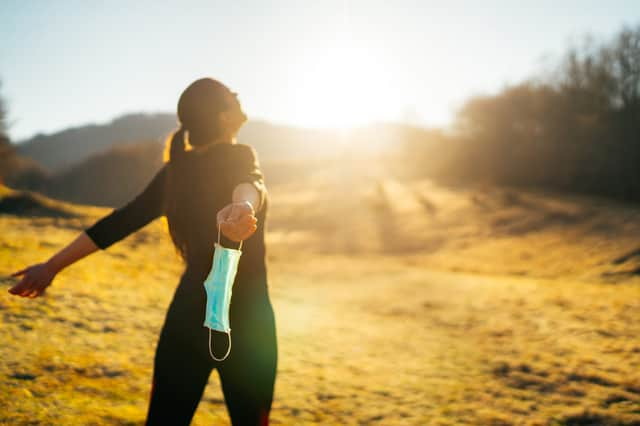It can take up to three weeks to build immunity after the Covid vaccine - here's why


Covid vaccines have long been championed as the way to offer people protection from the deadly virus - and England’s route out of a third national lockdown.
The UK has approved three coronavirus vaccines to date - Pfizer, Oxford / AstraZeneca, and Moderna - with more than 350 million doses ordered overall from several suppliers.
Advertisement
Hide AdAdvertisement
Hide AdAnd, even though UK ministers have warned the vaccine rollout will slow in the coming weeks, everyone in phase one of the programme is still expected to be offered a first jab by 15 April.
But how long after the first jab do people have protection from Covid, does this change over time and is a second dose really needed? Here’s what we know so far...
How long does it take to build immunity?
It can take time for the vaccine to take effect and provide protection against infection.
Experts have said it can take between two and three weeks for the body to build up sufficient immunity to fight off the virus after having a dose of one of the approved Covid vaccines.
Advertisement
Hide AdAdvertisement
Hide AdA single vaccine dose was providing 46% protection after two weeks and 67% after three weeks, according to data from the Zoe Covid Symptom Study App.
Professor Tim Spector of King's College London, who runs the ZOE app, said: “We are showing very low levels of side effects and we've showed that after three weeks we're getting a 67% protection against the virus, so three times less risk than you'd be getting otherwise compared to an unprotected control.”
This means that having a jab doesn’t give you instant protection against the deadly disease - and it is still important to adhere to the coronavirus laws, guidelines and good practices.
What is innate and adaptive immunity?
Whatsmore is there are different types of immunity, innate and adaptive, in the body’s system that respond differently to different infections.
Advertisement
Hide AdAdvertisement
Hide AdDeborah Dunn-Walters, professor of immunology at the University of Surrey, said: “There's a part of the immune system which we call innate immunity, which responds immediately.”
Innate immunity can’t defend disease on its own and isn’t affected by vaccines.
“So you need adaptive immunity as well,” said Dunn-Walters. “But the issue with adaptive immunity is that, as its name says, it's adaptive – it adapts to individual challenges by pathogens.”
Vaccines work by encouraging the body to make lots of immune cells, in turn producing antibodies to take down foreign invaders in the body such as viruses or bacteria.
“And this takes time,” added Dunn-Walters.
Do levels of protection weaken over time?
Advertisement
Hide AdAdvertisement
Hide AdDue to Covid being a relatively new disease, research continues to be done around the vaccines and how long they remain effective.
A study published in February 2021 offered encouraging signs for longer lasting immunity after Covid infection, with 88% of people maintaining antibodies in the blood six months later.
Almost 1,700 people tested positive for antibodies, suggesting a past Covid infection, during May to December in 2020 from a field of 20,000 people.
They each gave blood samples every day and by the end of the study - six months later - 88% of the group still had detectable antibodies in their bloodstream.
Advertisement
Hide AdAdvertisement
Hide AdUK Biobank chief scientist Prof Naomi Allen said: “Although we cannot be certain how [the presence of antibodies] relates to immunity, the results suggest that people may be protected against subsequent infection for at least six months following natural infection.
“More prolonged follow-up will allow us to determine how long such protection is likely to last.”